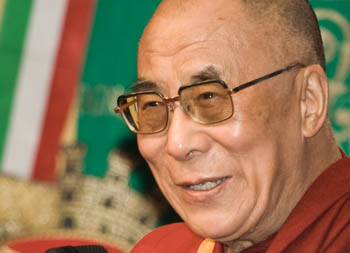
Recovery
 HAPPINESS - A LIFE OF MEANING
HAPPINESS - A LIFE OF MEANING


IN EARLY Oct, 2011, I gave a talk at NAMI San Diego. I had no problem picking a topic, as we would be holding our annual Inspirational Awards Dinner the following evening. We were honoring six local heroes, so I focused on connecting the dots - from values to a life of meaning to happiness.
I really don't know too much about happiness, I confessed to my audience. I haven't experienced it that much, and neither, I suspect, have you.
I spotted the heads nodding in agreement, and knew I was in for a good evening. Call me a killjoy, but there is something about demonstrably "happy" people that doesn't ring true with me. They come across as fake. There's a whole lot of personal unpleasantness that I know they are covering up. They are not being honest, with themselves or others.
Okay, that's just my opinion, but my audience seemed to be validating it.
We're really not built to be happy, I went on to say. Happiness is not well-suited to survival. Think about it. Imagine one of our distant ancestors - a happy caveman - merrily waltzing his way to the local watering hole, delighted to strike up an acquaintance with a saber-tooth tiger.
That caveman is not going to live long enough to pass on his happy genes.
SIGN UP FOR MY FREE EMAIL NEWSLETTER
Depression, of all things, is much better suited to survival. The rose-colored glasses come off. We see things as they really are. We make wise decisions. There is even a name for it - depressive realism. Too much depression, of course, like too much of anything, is not good. Nevertheless, I trust you get the point - we are wired to be depressed for a reason.
But, yes, we would all like a bit more happiness in our lives. Other articles in this seriesfocus on enlightened thinkers who have put a good deal of thought into this including George Vaillant, Martin Seligman, Gretchen Rubin, Robert Cloninger, and the Dalai Lama. One common theme is that those who serve others are far more satisfied with their lives than those who are out for themselves.
A few weeks prior to my talk, one of my colleagues and I worked on preparing bios of our six Dinner Awardees for press releases and for the Dinner program booklet. The exercise got me thinking - what do all these Awardees have in common?
In my talk I brought up our Inspirational Person of the Year, Father Joe, who is a household name in San Diego. As a young priest, he took a sacred vow to devote his life to God. And the first assignment he drew?
Making peanut butter sandwiches.
Trust me - I'm bipolar. It's very easy for me to connect God to peanut butter. But for the chronically normal? Well, it turns out that Father Joe made that connection through a lifetime of service to humanity. The forgotten, the down-trodden, the outcast, those we turn our backs on - Father Joe was there.
Inspirational? Don't get me started.
Service to others is one characteristic all our six Awardees share in common. Are they happy? Who knows? But they certainly have meaning in their lives.
To a person, they are on a mission, they have a calling.
How about you? I asked my audience. How many of you have a calling? A number of hands shot up. This was, after all, an audience of people involved in mental health, whether as advocates or caring for family members. One man mentioned facilitating a support group. I pressed him on this. Can you describe a satisfying moment for you? I asked.
Yes, he said. When a new member of the group hears other people's stories and she realizes she is not alone. The look on that person's face.
I used to facilitate a support group. I could well relate. It kind of makes showing up early to turn on the lights and arrange the chairs in the room and lay out the brochures on the table worth it, I suggested.
There were a lot of nodding heads in the room.
Did Steve Jobs have a calling? His passing the day before was fresh on everyone's minds. I pulled out the script of a 1997 Apple ad. "Here's to the crazy ones," I began. "The misfits. The rebels. The trouble-makers. The round pegs in the square holes. The ones who see things differently. ... They push the human race forward."
By rights, NAMI San Diego should be the most miserable place on earth. We have been through hell and hell again. But everyone there has a calling. To a person, their lives have meaning. No surprise, when I walk into NAMI these are people I want to be around.
One member of the audience raised the point that happiness is not a goal. That we should be striving for something else. This is a person who has collected quite a few awards of her own over her very meaningful career.
Ah, a life of meaning.
A few seconds later, my iPhone went off. I had forgotten to mute it. In full view of the audience, I pulled it out of my jeans pocket. I know somewhere up there Steve Jobs is smiling.
Previous Happiness articles: Happiness: Life's Greatest Challenge * Happiness: Putting in the Effort * Happiness: Optimism and Flow * Playing to Our Strengths
Published as a series of blogs 2009-2010, reworked into a series of articles Jan 26, 2011, reviewed Dec 5, 2016
NEW!
Follow me on the road. Check out my New Heart, New Start blog.












